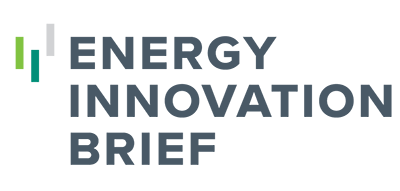
In Western Canada and around the world, the energy sector is rapidly transforming to one that promises to be cleaner, greener and more efficient. Each month, the Canada West Foundation’s Energy Innovation Brief brings you stories about technology innovations happening across the industry – in oil and gas, renewables, energy storage and transmission. If you have an idea for a story, email us at:
To kick off 2021, we are featuring stories that highlight Indigenous leadership and partnerships within Western Canada’s energy space. Increasingly, Indigenous groups across Canada are playing a leading role in the energy sector through partnerships, equity positions and project development. This is not something that’s always emphasized in the media – but this movement is strong and growing. This issue of the EIB highlights some exciting examples.
In this month’s roundup of energy innovation news:
1. Canada’s first Indigenous-owned LNG export facility underway
2. Western Indigenous groups driving utility-scale solar projects
3. Historic pipeline equity agreement signed by Indigenous coalition and TC Energy
4. Saa Dene Group helping to decarbonize enhanced oil recovery
5. Fort Nelson First Nation seeks to capitalize on geothermal opportunity
6. Cascade Power project awarded Power Deal of the Year
7. Indigenous groups play leading role in TMX monitoring and inspection
8. Major coalition of First Nations developing net-zero policy framework
Canada’s first Indigenous-owned LNG export facility underway
In B.C., the Haisla Nation recently negotiated a majority stake agreement for the Cedar LNG Project in the Douglas Channel – a floating LNG facility that will produce three to four million tonnes of LNG per year for export to Asia. This exciting partnership represents the first Indigenous-owned export facility in Canada. The facility itself is also making waves in the natural gas industry for its dedication to green practices, such as using an electric-driven liquification process. The project is already under construction with plans to begin operation by 2025. Read the full story here.
Western Indigenous groups driving utility-scale solar projects
Across the West, Indigenous groups are increasingly becoming the developers of major solar projects that both benefit local Indigenous communities and also provide power to the provincial grid.
- In Saskatchewan, the First Nations Power Authority (FNPA), an Indigenous-governed, not-for-profit utility company, signed an agreement with SaskPower in 2019 to secure $85 million worth of First Nations-led solar projects over the next 20 years. These projects will generate about 20 megawatts of solar energy – and constitute over 30 per cent of Saskatchewan’s goal of adding 60 megawatts of solar power to the grid. Read the full story here.
- In November 2020, Canada’s largest off-grid solar project was completed by Three Nations Energy (3NE) – a company jointly owned by the Athabasca Chipewyan FN, the Mikisew Cree FN, the Fort Chipewyan Metis Association – and ATCO. Historically, the community of Fort Chipewyan has relied solely on diesel fuel for power. Once the solar farm is operating at full capacity, it will meet 25 per cent of the community’s annual energy demand and replace more than 800,000 litres of diesel fuel every year. Read the full story here.
- In Manitoba, the Fisher River Cree Nation launched a seven-acre solar power farm that is the province’s first utility-scale solar project. The Fisher River community funded the nearly $2.4 million project, and the project was built entirely by Indigenous employees. The project was constructed in a way that also hosts wildflowers to support the local bee population, and also boasts an EV charging station available at no cost to the public. Read the full story here.
Historic pipeline equity agreement signed by Indigenous coalition and TC Energy
In November 2020, Natural Law Energy, a coalition of five Indigenous groups from Alberta and Saskatchewan, announced an equity investment of as much as $1 billion for a 12 per cent stake in the TC Energy Keystone XL project. While the Keystone project was cancelled by the Biden administration on January 20, this historic agreement represents one of the largest infrastructure equity investments by an Indigenous group in North American history. Read the full story here.
Saa Dene Group helping to decarbonize enhanced oil recovery
Calgary-based Acceleware and the Saa Dene Group, a collective of Indigenous-owned companies headed by Chief Jim Boucher, are bringing the heat to transform enhanced oil recovery technology in Alberta. The partnership, called Acceleware | Kisâstwêw (which means “heat” in Cree), is an effort to promote Acceleware’s RF XL technology to industry and policy makers. The technology significantly reduces GHG emissions, water and land use associated with oil sands operations. In October 2020, Acceleware received regulatory approval to proceed with a pilot test for the technology near Cold Lake, Alta. Read the full story here.
Fort Nelson First Nation seeks to capitalize on geothermal opportunity
In northern B.C., the Fort Nelson First Nation has relied on a local (yet depleting) natural gas reservoir to power its community for decades, as it is disconnected from the main provincial electricity grid. To power its future, the First Nation is now embarking on building a $100 million, 7-15 megawatt geothermal plant that will not only provide its community with zero-emissions power, but will also jumpstart new local industries such as a wood pellet plant and greenhouses. The geothermal project received a provincial permit in January 2020; however, its fate will ultimately hinge on the Nation’s ability to secure financing over the next few months. Read the full story here.
Cascade Power project awarded Power Deal of the Year
The Cascade Power Project – a 900-Megawatt natural gas plant located near Edson, Alta. – was awarded Canadian Power Deal of the Year for 2020 by Project Finance International, a source of global project finance intelligence. The project, developed and operated by Kineticor Resource Corp., is set to be completed in 2023 and will supply around eight per cent of Alberta’s electricity needs. The project was partially financed by an investment of $93 million by the Indigenous Communities Syndicate, a consortium of the Alexis Nakota Sioux Nation, Enoch Cree Nation, Kehewin Cree Nation, O’Chiese First Nation, Paul First Nation and Whitefish Lake First Nation. The group’s financing was backstopped by the Alberta Indigenous Opportunities Corporation. To learn more about the Cascade project click here and here.
Indigenous groups play leading role in TMX monitoring and inspection
Together, Indigenous groups in Alberta and B.C., along with the Canada Energy Regulator (CER), are transforming the way pipeline inspections and monitoring are done. Since 2017, the Indigenous Advisory and Monitoring Committee – representing the 129 Indigenous communities along the Trans Mountain Expansion pipeline route – have been working alongside the CER to incorporate greater Indigenous knowledge and values into monitoring activities. So far, they have completed over 50 joint compliance verification activities for the pipeline project. This partnership signals a transformation in how pipeline companies are working to advance the inclusion and oversight of Indigenous peoples in energy infrastructure developments. Read the full story here.
Major coalition of First Nations developing net-zero policy framework
On December 16, 2020, two major First Nations coalitions in Western Canada – the First Nations Major Projects Coalition and the First Nations Climate Initiative (which together represent 70 First Nations from across six provinces and territories) – signed a Memorandum of Understanding to work together to advance an Indigenous-led, net-zero emissions policy framework. The draft framework focuses on mitigating climate change and promoting Canada’s economic recovery through six key strategies. These include electrifying natural gas infrastructure in northern B.C., exporting Canada’s low-carbon energy to coal-reliant jurisdictions and establishing opportunities for Indigenous equity ownership. The two organizations have worked closely with government officials as well as industry and policy experts to draft the policy over the past year. Once it’s finalized, they hope it will provide federal and provincial governments with a solid framework to move forward on reconciliation. Read the full story here.
The Energy Innovation Brief is compiled by Marla Orenstein. This month’s edition features contributions by Jade McLean, Marissa Dimmell and Sumaiya Talukder. If you like what you see, subscribe to our mailing list and share with a friend. If you have any interesting stories for future editions, please send them to .
Photo by Mason Hassoun on Unsplash
